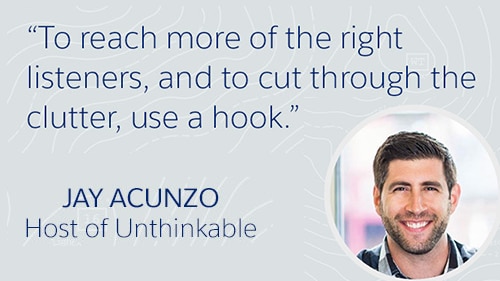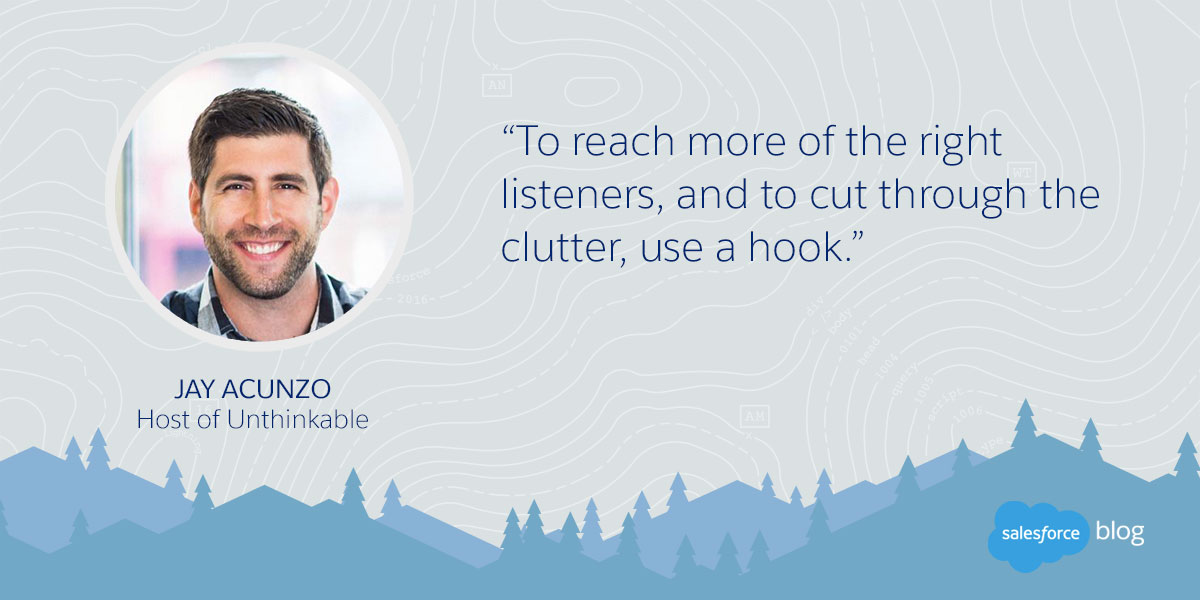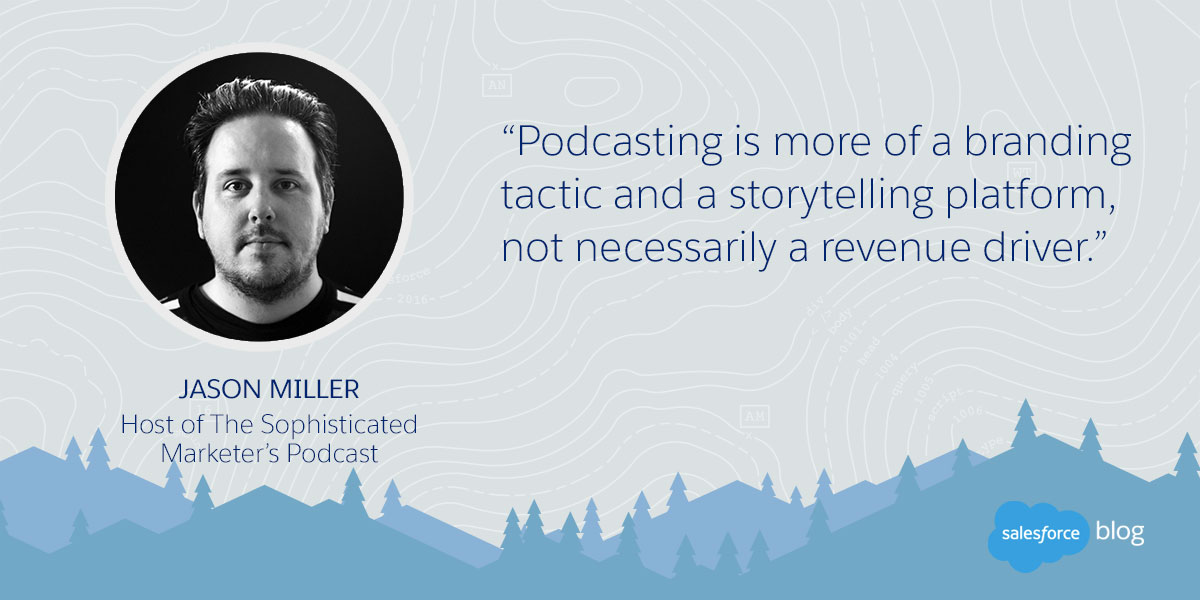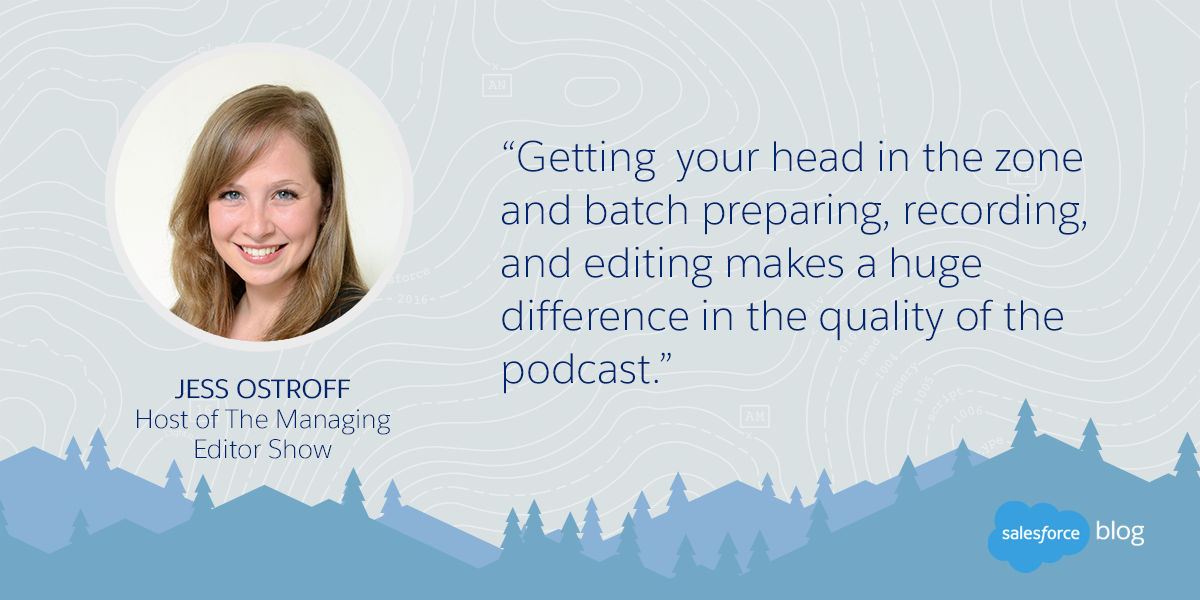How to Market and Measure Your Podcast



Podcasting has grown immensely in the past few years. According to the latest research, twenty-four percent of Americans have listened to a podcast in the past month. And the art of podcasting has come a long way from two hosts rambling on a subpar mic for an hour; listen to S-Town for evidence. If
Podcasting has grown immensely in the past few years. According to the latest research, twenty-four percent of Americans have listened to a podcast in the past month. And the art of podcasting has come a long way from two hosts rambling on a subpar mic for an hour; listen to S-Town for evidence.
If you’re a believer in the storytelling excellence and audience growth potential of podcasting, you may be wanting to create a podcast for your own business — as part of your marketing strategy. If that’s the case, check out the previous posts in this series:
- How to Start a Podcast: Your First Steps and Strategy
- The Logistics of Starting a Podcast: Recording, Interviewing, and Blanket Forts
If you made it through the logistical portion and are feeling good about your finished product, you probably next want to know how to promote the heck out of it and measure your success.
Check out these things we’ve learned while marketing and measuring our own podcast for Salesforce, the Marketing Cloudcast.
I’ve also sourced tips from these wondrously talented podcast hosts and producers:
- Jay Acunzo, host of Unthinkable
- Andy Crestodina, host of Content Matters
- Jason Miller, host of The Sophisticated Marketer’s Podcast
- Jess Ostroff, host of The Managing Editor Show
How to Market Your Podcast and Get More Subscribers
Launch with multiple episodes to enable binge-listening. I used this strategy for the Marketing Cloudcast and I’ve seen many other new podcasts do the same. For example, S-Town released its entire season on day one. I recommend releasing at least three episodes on your big launch day. Bingeable content is increasingly the norm. This is why Netflix releases an entire new season of House of Cards or Orange is the New Black at once — because they know the importance of mass-indulging.
Launching with several episode gets your audience hooked and assures them that your podcast is in it for the long haul, not a one-off experiment.
Andy Crestodina recommends another strategy to secure binge-listens: “Preview the next podcast at the end of each episode. This can help get people to hear many episodes in a row.”
Decide how you’ll approach commercials. Most podcasts have commercials; listeners are accustomed to them. Will you promote short URLs to your company website? Who will read the commercials? How long will they be, and how many of them per episode?
Andy advises, “During your podcast, mention some kind of visual — like an infographic, video, or diagram. Then tell people where they can go find it!”

Track leads or at least traffic from your podcast. On the Marketing Cloudcast, we often promote e-books relevant to that episode’s topic. For example, if we interview an email marketing guest, we promote an email marketing e-book. We then create a URL to promote the e-book that tracks visits and downloads from the podcast. We shorten that URL to something more memorable.
Will your podcast ever be your biggest source of leads? Probably not. It’s a lot to ask of someone listening to a podcast to stop what they’re doing and type a URL in a web browser, especially because many podcast listeners are likely enjoying your content while driving, at the gym, or doing another activity. But you might be surprised how many downloads you do get.
Consider adding a paid budget. Organic marketing and word-of-mouth spread of your show is ideal, but if you want to supercharge growth to a targeted audience, consider social media ads in a relevant place.
Jason Miller suggests, “Put some paid advertising behind it. Run targeted campaigns to drive not only downloads, but subscribers as well.”
Dominate internal marketing. No matter the size of your company, it’s probably true that employees don’t always know what initiatives are happening around them. (And this gets truer the bigger the company is.) Promote new episodes in internal collaboration groups, via email, and in meetings, tagging the people who should know or can help you promote. Send one-on-one emails to make sure key stakeholders are aware of what’s in it for them.
Ask for reviews. Every podcast asks for reviews, right? But reviews really do help new listeners discover your show on Apple Podcasts and other platforms. And don’t forget your guests. Andy Crestodina suggests, “If you do interviews, remind your guests that they are welcome to write an iTunes review if they like your show.” Great advice — if you do one interview every other week, that’s 24 (likely positive) reviews in a year.
Above all, focus on your hook. Once you’ve recorded a bunch of new episodes, more content starts filling your funnel, and a bigger portion of your time is devoted to promotion and marketing, don’t neglect the original premise of your show — the hook that’s at the center of every word.
Jay Acunzo why your hook is so important: “A hook is a firm angle or carefully crafted trope that is overtly articulated in the show (title, tagline, promotional touchpoints) and also informs the creative. There are simply too many shows that cover generic topics (e.g., marketing) or use playful titles (The Marketing Maven Show) rather than strong hooks to instantly reel in a listener in that one moment and get them to subscribe for the journey.”
He continues, “Look, you can create a show generically about your industry’s topic, but in doing so, you effectively market to listeners that already appreciate your name. To reach more of the right listeners, and to cut through the clutter, use a hook." Read more from Jay about developing hooks.

Make a desktop background of your hook, tattoo it on yourself, do whatever you need to do to keep it top of mind, anytime you market or produce your podcast.
How to Measure Your Podcast’s Success
Five hundred, twenty-five thousand, six-hundred minutes… How do you measure a podcast? (First off, that sounds like too long of a podcast.) Ah, the million-dollar (you hope!) question.
In Libsyn, the hosting service I and many other podcasters use, you can measure:
- Total downloads
- Downloads by different time constraints, like day, week, etc.
- Downloads of each episode (which helps you see which topics are most popular)
- Basic geographic data of where listeners are
- The technology they’re using (like Overcast and Apple Podcasts)
Like I mentioned in the marketing section, we also measure e-book downloads from every episode. We also measure blog post visits (every episode gets its own launch post) to make sure they’re getting attention. Of course, I also monitor and measure the Marketing Cloudcast’s reviews on Apple Podcasts.
There’s no exact way to measure your number of subscribers, though you can take a look at how many downloads of a new episode you have on launch day and get some idea.
How are other hosts measuring their podcasts? Andy says, “Measure downloads and reviews. Don’t measure website traffic. Podcasts are platform-independent. Many of your listeners might never visit your website! That’s perfectly fine.”
Jason advises, “Measure downloads, subscribers, rankings, shares, number of/quality of reviews, geographies. Do not try to measure direct ROI. This is more of a branding tactic and a storytelling platform, not necessarily a revenue driver.”

Jess Ostroff explains her experience: “We always share on social media, put a few dollars behind some promoted posts on Facebook, and we encourage our guests to share their particular episode after it airs. We also recently held a giveaway as a way to get more reviews on iTunes and boost our ranking.”
She continues, “As we grow, we are working on getting in front of more editors, asking for pitches from our communities on what to cover on the show, and posting relevant episodes in groups and on forums where they’ll be useful. Because at the end of the day, that’s the number one way to grow your show: Be useful! Solve listener problems with your podcast and have fun doing it.”

My Last Piece of Advice
I hope this blog series been inspirational — and that you feel more confident about starting a podcast. But for the sake of presenting all sides, I want you read this article by Ryan Holiday. We’ve interviewed him on the Marketing Cloudcast, and he’s a super smart guy. He used to lead marketing at American Apparel and has written some great books, including The Obstacle Is the Way and Ego is the Enemy.
That article does a fantastic job of presenting the argument that you may not need to start another podcast — because there are plenty of homegrown podcasts out there.
This is a quick snippet of the article:
Because “lots of other people are doing it” is a really poor reason to do anything. Because the world doesn’t need another interview show conducted on Skype. Because thinking something would be fun and easy — because you were on one yourself or listened to an episode — is a really superficial understanding of a complex and difficult production. Because when someone really respects a medium, they don’t half-ass their contribution to it.
Ryan is not a podcasting hater. He’s disapproving of copycats and people who haven’t fully committed to a top-quality podcast. And I couldn’t agree more.
Podcasting is not a quick fix — and it’s not easy (at least, it shouldn’t be, if you want to craft something worthwhile).
On the other hand, if you’re willing to put in the work; you have a strong sense of how this plays into your overall marketing strategy; and you’re ready to evangelize within your network and company, you have a strong chance of resonating with people in a new way.
Did you enjoy this blog series on podcasting? More questions I didn’t answer? I hope you’ll let me know. I’m @youngheike on Twitter.

























